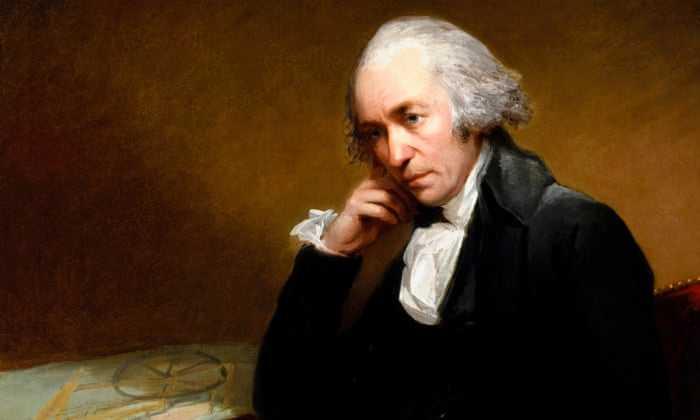Explore the World's Best Ideas
Join today and uncover 100+ curated journeys from 50+ topics. Unlock access to our mobile app with extensive features.
James Watt
James Watt was a Scottish engineer and inventor from the 18th century and is remembered for improving the design of the steam engine.
Watt's steam engine made energy supply more efficient and reliable. It was fundamental to the start of the Industrial Revolution.
48
423 reads
James Watt's life
- James Watt was born on January 19, 1736, in Renfrewshire, Scotland. Due to illness as a child, Watt was mostly homeschooled.
- His father was a shipbuilder. Watt grew up around his father's workshop and mentioned that it had a profound influence on his educational goals and the direction of his career.
- When Watt was 18, he traveled to London to study mathematical instrument making, which involved learning to build and repair devices such as quadrants, compasses, and scales.
- A year later, Watt returned to Scotland and opened a mathematical instrument shop at the University of Glasgow.
46
171 reads
The revolutionary discovery
- In 1764, Watt received a Newcomen steam engine to repair.
- The 1712 Newcomen engine worked by condensing steam in a cylinder, which then creates enough push to power a piston.
- While fixing the engine, James Watt noticed that more than three-quarters of the steam was wasted due to repeated heating and cooling in the same cylinder.
- He then designed a cylinder that had a separate chamber to condense the steam in. Watt's engine kept the cylinder at a stable temperature as the steam condensed in a separate chamber. This was revolutionary.
45
143 reads
James Watt faces difficulties
- James Watt lacked capital and was initially unable to construct a full-scale engine.
- In 1766, with investment from Joseph Black, Watt created a successful small test engine.
- A year later, Watt started a business partnership with John Roebuck, and they took out their famous patent for "A New Invented Method of Lessening the Consumption of Steam and Fuel in Fire Engines."
- Acquiring the patent used all of Watt's money, and he was forced to take on alternate employment.
- Seven years later, Watt's old business partner went bankrupt, and Matthew Boulton, an English manufacturer, acquired Roebuck's patent rights.
- Watt now returned to working full-time on his engine.
45
140 reads
Changing the world
James Watt and Matthew Boulton founded a manufacturing firm, where Watt spent years improving the efficiency and cost of his engine.
The demand for Watt's engine grew and was adopted across multiple industries. His steam engine became a "mechanical workhorse of the Industrial Revolution."
46
192 reads
IDEAS CURATED BY
Elena A.'s ideas are part of this journey:
Learn more about history with this collection
Leonardo da Vinci's creative process
How to approach problem-solving like da Vinci
The importance of curiosity and observation
Related collections
Similar ideas
4 ideas
Heroes of Progress: Wilhelm Rontgen
humanprogress.org
5 ideas
Heroes of Progress: Lucy Wills
humanprogress.org
1 idea
Vacuum cleaner - Wikipedia
en.wikipedia.org
Read & Learn
20x Faster
without
deepstash
with
deepstash
with
deepstash
Personalized microlearning
—
100+ Learning Journeys
—
Access to 200,000+ ideas
—
Access to the mobile app
—
Unlimited idea saving
—
—
Unlimited history
—
—
Unlimited listening to ideas
—
—
Downloading & offline access
—
—
Supercharge your mind with one idea per day
Enter your email and spend 1 minute every day to learn something new.
I agree to receive email updates


